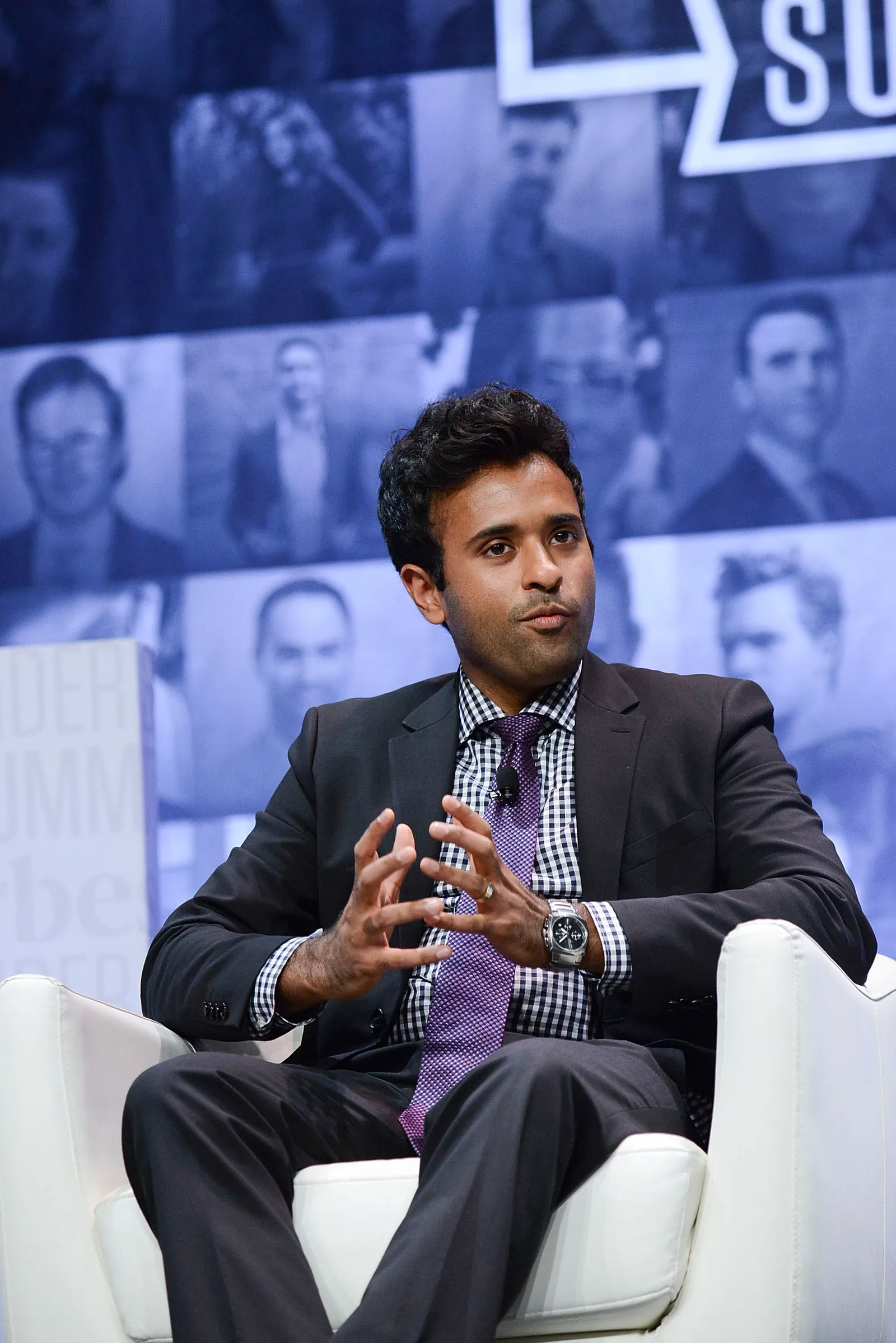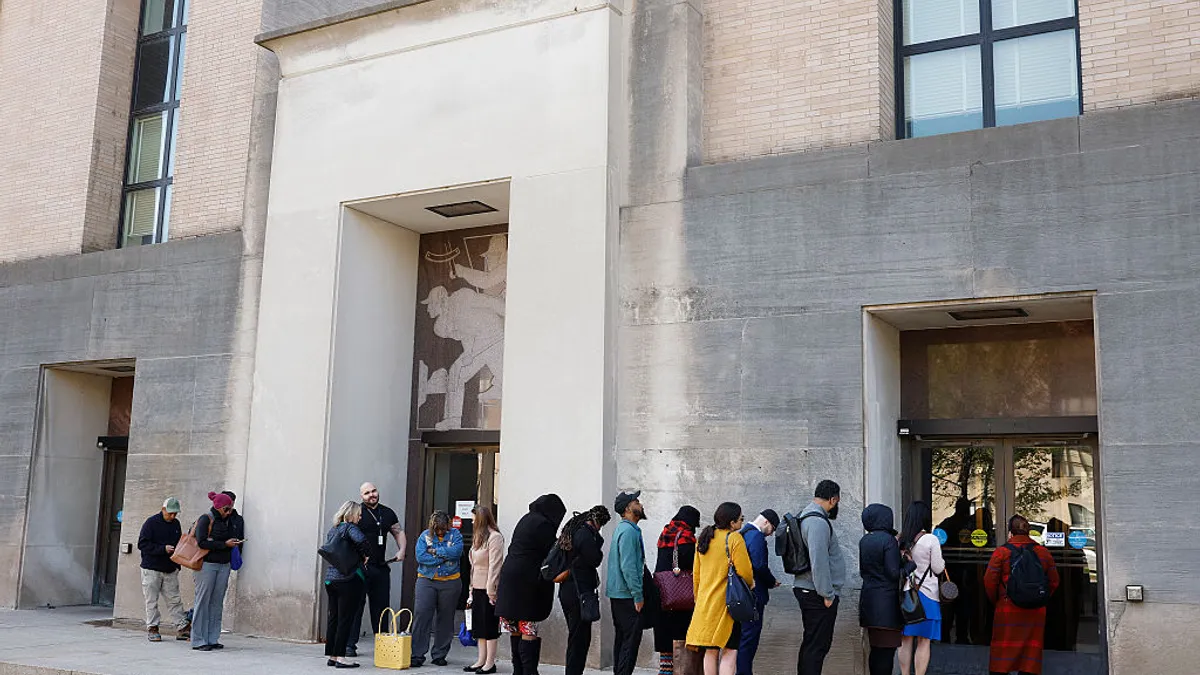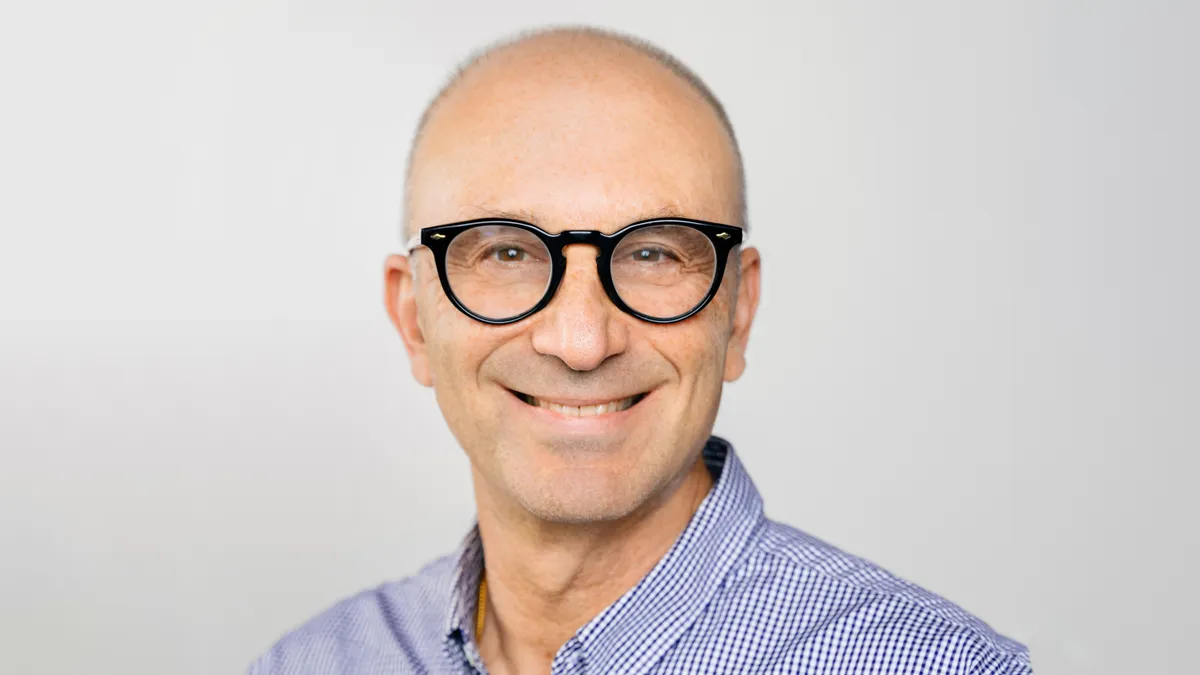Vivek Ramaswamy was hailed as a wunderkind when he blazed onto the pharma scene in the late 2000s, first as an investment analyst, and later as the co-founder and CEO of Roivant Sciences. Now he’s taking on a new challenge — a U.S. presidential run.
At 37, the Cincinnati native and son of a General Electric engineer and a Merck/Schering-Plough geriatric psychiatrist, surpasses the age eligibility floor for the office by just two years and is likely to be the youngest candidate running in a growing field of Republican hopefuls that currently includes former President Donald Trump and former South Carolina Gov. Nikki Haley.
And although he amassed fortunes — in 2016 his net worth was estimated to be $600 million — advancing medicine, Ramaswamy is perhaps better known for his self-appointed role as the “godfather of the anti-woke movement,” a persona he’s cultivated since publishing The New York Times bestseller “Woke, Inc.” in 2020 and by making frequent appearances on cable television.

In his campaign, Ramaswamy’s doubling down on the culture-war and anti-politically correct mentality he’s evangelized. His platform, for instance, includes ending affirmative action, making political expression a civil right, drastically shrinking the federal bureaucracy, and waging an economic war against China and an actual war against Mexican drug cartels.
“I’m launching not only a political campaign but a cultural movement to create a new American Dream — one that is not only about money but about the unapologetic pursuit of excellence,” Ramaswamy said in a Wall Street Journal op-ed announcing his candidacy. “I am running on a vision for our nation — one that revives merit in every sphere of American life.”
His pharma legacy
As a child, Ramaswamy first encountered the medical field while playing piano for the Alzheimer’s patients his mom would treat. But it wasn’t until after studying biology at Harvard — where he worked in the lab of stem cell chemist Douglas Melton — and attending Yale Law School, that Ramaswamy found his way into the life sciences from the business side.
First, he joined QVT Financial, where he slowly made a name for himself with a simple “buy low, sell high strategy.” In one notable example of this approach, he bought shares of the New Jersey-based Pharmasset in 2008 at $5 apiece, and then was a top shareholder by the time Gilead bought the company for $137 a share four years later.
Then, in 2014, he left QVT to found Roivant with a goal to “reduce the average time and cost of the drug development process,” by rescuing drug R&D pushed to the side for financial, rather than scientific, reasons by other companies. In a model Ramaswamy dubbed the “Berkshire Hathaway of drug development,” Roivant was designed to spin out smaller, highly focused subsidiary companies.
But without a strong background in science, Ramaswamy ran the company with a more business-focused, managerial mindset and brought on experienced scientists to find and develop potential breakthrough drugs.
When one of the company’s first “vants” — Axovant — launched with what was at the time the biggest IPO in U.S. biotech history (it’s now been surpassed by Moderna), Ramaswamy canceled his honeymoon to ring the bell at the New York Stock Exchange. During his tenure as CEO, a role he stepped down from in 2021, Ramaswamy oversaw the FDA approval of five medications, including the prostate cancer drug Orgovyx and overactive bladder medication Gemtesa.
A turn to politics
Although as a biotech CEO Ramaswamy signed a 2017 letter supporting the “principles and best practices to increase gender diversity” in the life sciences industry, just five years later Ramaswamy became a mouthpiece against similar goals.
He also has a track record of donating to Republican candidates — including a total of $30,000 to the Ohio Republican Party since 2020. But his own foray into the world of right-wing politics didn’t begin until 2021 with the publication of “Woke, Inc.,” his book making the case against social justice and inclusivity initiatives in business.
Since then, he’s been a figurehead in the fight against “woke” business practices, and founded Strive Asset Management, which aims to “depoliticize corporate America” by providing funding to companies regardless of their political and social policies. He’s also written public letters to Apple and Disney asking the companies to halt diversity, equity and inclusion initiatives.
In 2021, calls from fans during his book tour urging him to run for political office led him to consider running for a U.S. Senate seat in Ohio, but he eventually decided against it telling Politico that the goal of many in Congress is “get on cable television, and I was already on cable television.”
And while his presidential campaign is largely considered a long-shot bid in the same vein as previously business-oriented candidates including Tom Steyer and Herman Cain, Ramaswamy said he is fashioning his campaign in a similar vein to Trump’s 2016 bid.
“I’m in this to be the next president of the United States and I’m running on a vision for our country that I’ve developed over the last three years,” he said during an appearance on Fox News. “(Trump) was the OG of America First. I’m taking that to the next level with America First 2.0.”
A presidential campaign
Once described as someone who “likes arguing” by a college professor, Ramaswamy has already hit the campaign trail in the key early Republican primary states of Iowa and New Hampshire to drum up support.
So far, his platform closely mirrors overall GOP values of “liberty, economic prosperity, preserving American values and traditions” and is focused on what he describes as reinvigorating the country’s identity.
For instance, one of his key “anti-woke” policy proposals is to repeal an executive order first enacted by President Lyndon B. Johnson that requires affirmative action and prohibits federal contractors from discriminating based on identity. In addition, he wants to make political expression a civil right, which would prevent private companies from hiring or firing individuals based on their political beliefs.
Republicans complain about affirmative action, yet need to actually do something about it. I’ll end it with the stroke of a pen on Day 1 - period. https://t.co/sC6dgoDCLd
— Vivek Ramaswamy (@VivekGRamaswamy) February 23, 2023
He’s also a proponent of downsizing the federal government and has proposed shutting down federal agencies, including the Department of Education, arguing that “it has no reason to exist.” Ramaswamy recently suggested that bureaucrats should be limited to working eight years at federal agencies.
“If the president can’t work for the government for more than eight years, neither should most federal bureaucrats. I like her idea of term limits for elected officials, but what we *really* need is sunset clauses for the actual cancer in the government: the managerial bureaucracy,” he said in a tweet.
As for foreign policy, his most strongly held position is to wage an economic war against China including by banning “U.S. companies from doing business in China until the CCP (Chinese Communist Party) meets certain demands.” However, he has yet to define how such a proposal would take into account drug manufacturers’ reliance on China for APIs, or how he would maintain the drug supply chain without Chinese manufacturing.
His strong positions against Chinese business appear to be newly held, as two of Roivant’s subsidiaries during his time leading the company, including Cytovant Sciences and Sinovant Sciences, notably focused on the innovations of medicine in China and for patients across Asia.
To fight the fentanyl crisis, Ramaswamy said he would consider a “military assault” of Mexican drug cartels using airstrikes, drone attacks and special forces operations.
Despite his background in pharma and recent debates over how the federal government should handle drug pricing, Ramaswamy has yet to release a policy platform on the issue, or other issues directly impacting the drug industry.





















